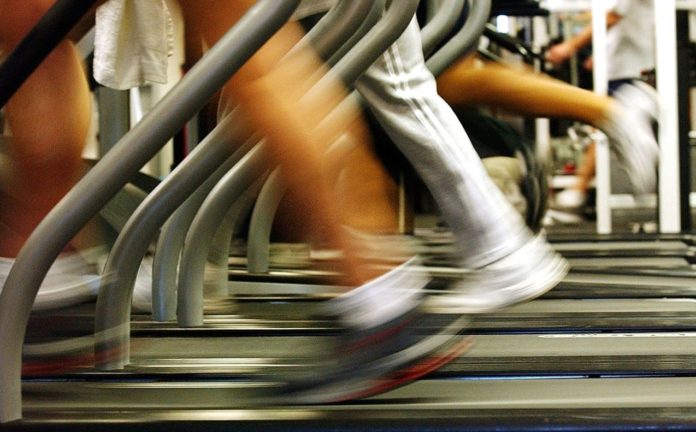No matter how many calories you burn, the weight loss will be less than you expected.
When it comes to calories, the numbers don’t always add up. Check your smartwatch or Peloton tally, keep track for a few months, and then check the bathroom scale. No matter how many calories you burn, the weight loss will be less than you expected.
That’s the crux of a new assessment by Lewis Halsey, director of the Behaviour and Energetics Lab at Roehampton University, in Physiological and Biochemical Zoology. Some long-held beliefs about exercise are being disproved by studies employing new tools to quantify calorie burn.
The dispute revolves around the concept of “doubly-labelled water,” which is water that contains rare – and easily trackable – hydrogen and oxygen isotopes. In the 1950s, a researcher named Nathan Lifson discovered a method for reliably measuring mice’s total daily calories burned by having them drink some of this specific water and then collecting urine to see how long it took to digest. The issue is that conducting the identical experiment on a human would have cost more than $300,000.
It is only in the last few decades that the cost of the procedure has decreased sufficiently for scientists to deploy it widely, with a current price of roughly $750 per individual. The findings have been surprising, most notably when a team led by Herman Pontzer of Hunter College in New York (he is now at Duke University) tested it on the Hadza, a community of hunter-gatherers who continue to live in their traditional way in northern Tanzania.
By hunting with a bow and arrow and foraging with digging sticks, the ordinary Hadza adult gets more exercise in a day than the average couch potato in a week. However, as Pontzer recounts in Burn, a fascinating book he wrote earlier this year about the new science of metabolism, the results defied his and everyone else’s expectations. When age and body size are taken into account, Hadza adults burn almost the same number of calories per day as Canadians — and everyone else from communities worldwide evaluated with doubly-labeled water.
We know from thermodynamic fundamentals that physical exercise must burn calories. Thus, the fact that increased physical activity does not result in increased overall calorie burn implies that we must find alternative ways to save calories: what Halsey refers to as “energy compensation.”
The first concern is how we accomplish this. One explanation is that after exercise, we become less fidgety and move around. Another reason is that we expend less energy on body tasks such as immune response and tissue repair. Thirdly, our cells grow more efficient in converting food to useful energy, extracting more energy from each calorie we consume. According to Halsey, there is simply not enough evidence to pick between them at the moment.
The second question is what this signifies for our society’s continuous struggle with obesity. Another double-labeled water research published in July reveals that energy compensation ramps up while you’re losing weight but decreases when you’re maintaining or increasing your weight. This supports the widely held belief that exercise is more effective at avoiding weight gain than at facilitating weight loss.
Even though energy compensation works against you, it does not negate your efforts entirely. In one study frequently cited as evidence of the impact, participants training for a half-marathon burnt fewer calories than their training expected – but they burned about 30% more calories than they did before they began training, which may be enough to shift the scale’s needle.
The greater message, though, is that excellent health is not limited to maintaining a specific weight. Pontzer posits in Burn that some of exercise’s health benefits may be a direct result of energy compensation. If your body thwarts your weight-loss efforts by suppressing immune function, you may be able to reduce persistent low-grade inflammation in reaction to foods and allergens while retaining the ability to respond to true threats. Likewise, this is true for the body’s stress reaction.
Halsey, too, is sure that physical activity is critical for health and even contributes to weight loss – but not in the straightforward sense that the statistics show.
“We need to get over the idea that if we start doing, for example, 300 calories of exercise per day, then we have burned that many more calories per day,” he says.
“That appears not to be the case, in the long run.”
Image Credit: Getty
You were reading: Studies Reveal the Truth About Calorie Burning, Weight Loss, and Health
